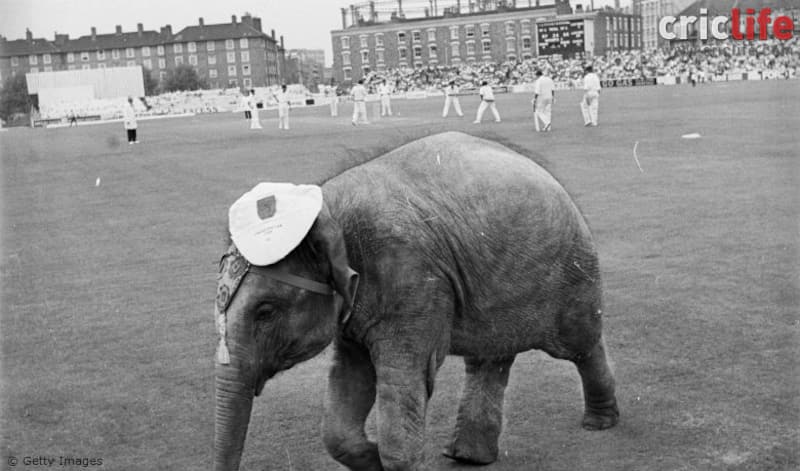This website uses cookies so that we can provide you with the best user experience possible. Cookie information is stored in your browser and performs functions such as recognising you when you return to our website and helping our team to understand which sections of the website you find most interesting and useful.
When Lord Ganesha came to bless Indian team in England
When India toured England for a three-Test series in 1971, they were high on confidence as they were coming from winning their first series against West Indies, that too at their den.
Written by Abhishek Kumar
Published: Sep 17, 2015, 03:17 PM (IST)
Edited: Sep 27, 2015, 12:16 AM (IST)

When India toured England for a three-Test series in 1971, they were high on confidence as they were coming from winning their first series against West Indies, that too at their den. Critics considered India’s series win over West Indies a fluke; they expected the Indians to be outplayed in the English conditions by Ray Illingworth’s men, who were fresh from regaining The Ashes Down Under. Despite the pessimistic criticism Ajit Wadekar-led Indian team fought hard in their first two Tests and did not let the opposition win; both Tests were drawn, and the critics were silenced to some extent.
The third Test at The Oval was the decider, and remains one of the most iconic matches in the history of Indian cricket. Winning the toss, England posted 355 in the first innings. India fell 71 short of England’s total.
On Day Four the England batsman walked out to bat with a positive approach of setting a huge target with intent to win the Test and the series. But since the pitch assisted the spinners, Indian tweakers Bhagwat Chandrasekhar — the man who was supposed to be dropped till Wadekar insisted — rose to the occasion.
Chandra stood by his captain’s faith and ripped the English batting line-up in the second innings by claiming 6 for 38 runs. He was backed by Srinivas Venkataraghavan and Bishan Bedi. England could manage a meagre 101. But despite that India had to score those 173 runs.
The Indians dug in, and at stumps on Day Four they were comfortably placed at 76 for 2. Wadekar was still at the crease with 45, confident of winning the match and the series.
Next morning, prior to the start, manager Hemu Adhikari drew Wadekar’s attention to an elephant which was walking around ground with a lady smartly guiding her. The elephant named was Bella. Adhikari, a Mumbai resident, quipped by saying it is a good omen as it was the day of Ganesh (the elephant-headed Indian god) Chaturthi festival. This proved to be a positive sign for Wadekar and provided him more belief of winning the game.
Wadekar walked towards the crease with a fearless approach, but was run out first ball. He went back to the pavilion and prayed to Lord Ganesha to make this win possible — and promptly fell asleep. Two more wickets fell after Wadekar’s, but Farokh Engineer and Abid Ali confronted the English attack to seal the historical win for India.
Wadekar was unaware of the victory as he was fast a sleeping till the time when England manager Ken Barrington woke him up to congratulate him. Wadekar replied: “I always knew we’d win”.
Not only did India win 1-0, but it was also the first time that they tasted success against England in their own den. With this performance India defied all odds; the critics, for once, were silenced.
Many said that finally that it was the first time when India came out of British Slavery by defeating them in their home. Some also said that Lord Ganesha himself arrived at the ground in the form of an elephant to bless the Indian side.
Fittingly, the first chapter of Mihir Bose’s magnum opus A History of Indian Cricket is titled The Day the Elephant Came to The Oval.
(Abhishek Kumar is a cricket devotee currently staffing with Criclife.com. He can be followed at abhicricket.kumar and abhishekkr2593)
TRENDING NOW

